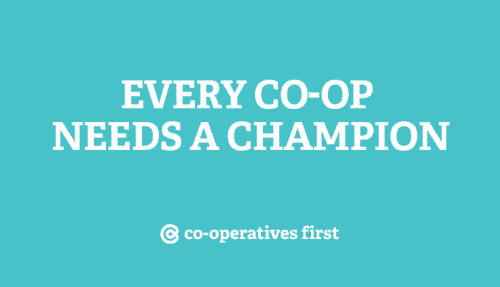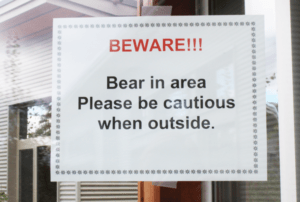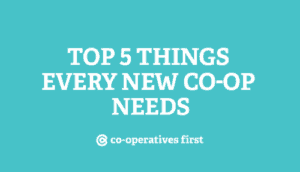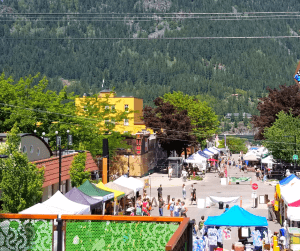For every co-op, there is a champion
Co-operatives are, by definition, a group effort. But, like any new venture, co-ops need an entrepreneurial “co-op champion” to push the vision forward. In Fraser Lake – a resilient little village nestled near Mouse Mountain in the interior heart of BC – that person is Shellie Gleave.
Dream big
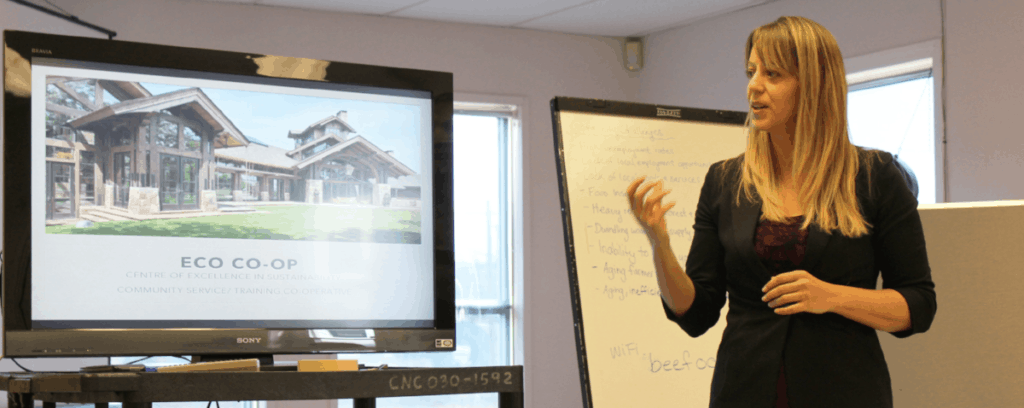
Shellie Gleave shared her vision at a community meeting for the Fraser Lake Eco Co-op.
“I’m a big dreamer,” Gleave said during our recent visit to Fraser Lake.
Indeed, she is. Gleave has a vision for a co-operatively-owned facility designed to support local entrepreneurs, increase food security in the region and provide better access to educational opportunities for young people.
Gleave envisions a place where people grow fresh produce, local artists make and sell products, and universities and colleges offer training to young people. The goal is to increase business opportunities and access to fresh food while reducing the trend of youth leaving the area after graduation to get an education, learn new skills or find a job.
Identify need. But explore opportunity.
Located about 150 km west of Prince George, Fraser Lake has a population of around 1,100. A few years back, the village took an economic hit after the Endako molybdenum mine suspended operations in 2014. At the time, the mine employed about 400 people, and around 270 lost their jobs due to the shutdown. The local grocery store soon followed.
In the face of this downturn, Gleave — an optimist and entrepreneur —assembled a group of community leaders and suggested this was an opportunity to create a small market, support local food production and increase educational services to youth in the area.
Go local. DIY.
When businesses not tied to the community packed up and left, Gleave said the co-op model seemed the perfect way to fill the gap.
“I thought: we have to do something local — a locally-grown, cultivated, initiative,” Gleave said. “What makes sense for when you bring communities together is co-operation.”
Ever the entrepreneur, Gleave has been educating herself throughout the process, and also took part in the Co-operate Now training offered by British Columbia Co-operative Association (BCCA) and Vancity Credit Union. The course gave her confidence and made her feel “better equipped,” she said.
Drive interest. Build a team.
Gleave also does much of the leg-work, pushing the project forward, connecting essential players and often recruiting others along the way.
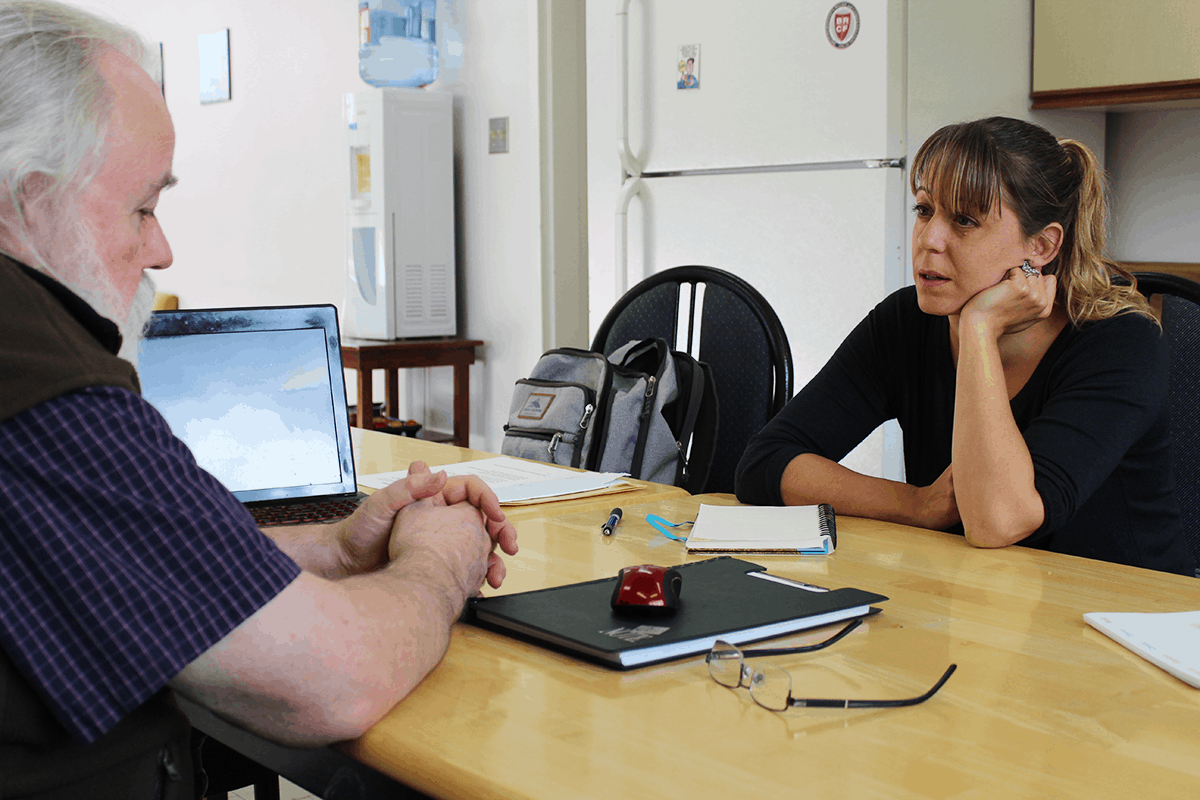
Shellie with the legendary Marty Frost discussing business development and steps to incorporation.
For a co-op to form and succeed, the recruitment stage is vital. A co-op requires a team. Thankfully, Gleave’s drive and optimism is fairly infectious, and she has managed to gather a solid steering committee.
Gleave said she is lucky to have a strong group of committed community leaders with diverse skillsets and interests. Recognizing the value in organizing all available interest and resources, the committee includes representatives of local First Nations and a sawmill, which is the area’s biggest employer.
Think regionally.
In compiling a team, Gleave also said it has been important to think outside the borders of one village and, as our good friend at BC Economic Development Association Dale Wheeldon says, “think regionally.”
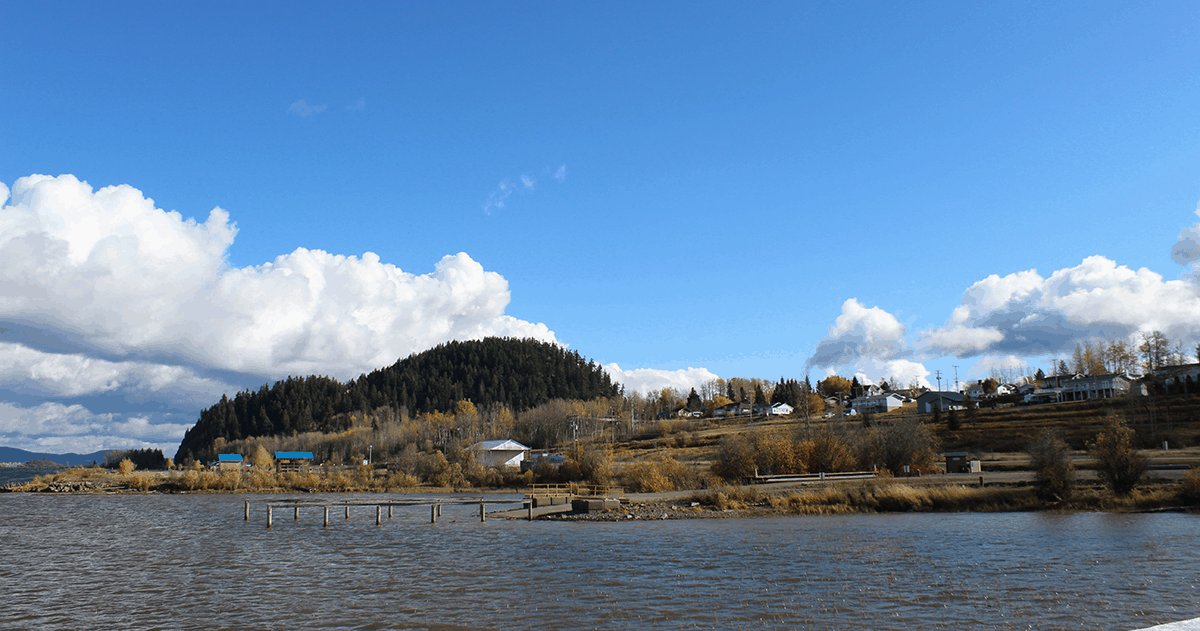
Fraser Lake, BC.
“To be able to think of us instead of just being a community, we’re a regional community,” said Gleave. “That makes sense to us, because we’re providing opportunity for everybody.”
Though Gleave proves she is a team player, it’s clear that she’s an important champion, too.
Want to read more about co-op champions making their community better? Start with a co-op in Sangudo, Alberta.

